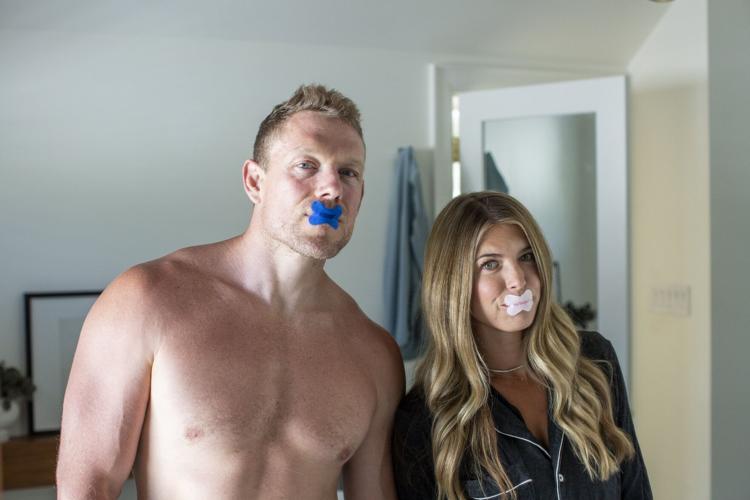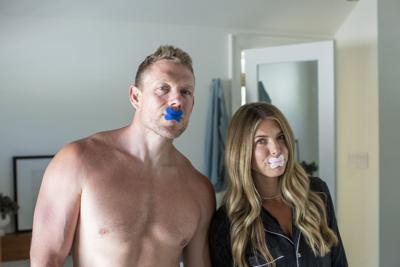TORONTO - Canadian researchers say there’s no evidence that mouth taping has any health benefits and warn that it could actually be harmful for people with sleep apnea.
Some social media ads and celebrity claims say that putting tape over the lips can help people breathe through the nose while sleeping, and thereby reduce snoring and improve rest.
The senior author of a study published Wednesday in the journal PLOS One said mouth taping could be dangerous for people with sleep apnea — a serious condition where breathing stops and starts while sleeping — and many may not even realize they have it.Â
“There’s a large proportion of people out there who have undiagnosed sleep apnea, possibly severe sleep apnea,” said Dr. Brian Rotenberg, who is an otolaryngology specialist at London Health Sciences Centre, St. Joseph’s Health Care London and Western University.Â
“When you literally tape your mouth shut and your airway is already being blocked somewhere behind that, you’ve now blocked off basically half of your airway,” he said in an interview Wednesday.Â
Rotenberg’s research team screened dozens of studies related to mouth breathing and said 10 were worth examining further.
Of those studies, Rotenberg said eight showed no benefits to using mouth tape and two showed minimal benefits that were not clinically significant.
Rotenberg said people who have trouble breathing through the nose while sleeping should seek medical advice to find out why.Â
Training yourself to breathe through your nose instead of your mouth is a “noble goal,” Rotenberg said, noting that nose breathing warms and humidifies the air coming in and prevents dryness and discomfort.Â
But there may be a “mechanical” reason someone can’t breathe through the nose, such as a deviated septum, nasal polyps or a nasal valve collapse, he said.
“Mouth tape is not going to fix that issue, right? Mouth tape is not going to fix a mechanical blockage of your nose.”
Rotenberg said he and his colleagues conducted the study to provide science-backed advice to a steady stream of patients asking about mouth taping.Â
“I would say every week in my clinic somebody was saying something about mouth taping. So we thought, ‘Well, we should probably look into this.’”
Rotenberg likens using mouth tape for a breathing issue to buying eyeglasses off the internet without seeing an eye doctor.
“Maybe all you needed was corrective glasses. Great. (But) what if you’re having cataracts? What if you have a glaucoma? Or if it’s actually a retina issue? All of these things can present as just ‘my vision’s not great.’ But meanwhile, those are real diseases that should have been treated and are not.”Â
Dr. Mark Boulos, the medical lead for the sleep laboratory at Sunnybrook Health Sciences Centre in Toronto, said the study findings reinforce the lack of evidence for mouth taping and the importance of seeing a clinician if mouth breathing cases problems such as snoring or bad breath.Â
“There could be important reasons for snoring. It’s not about just nasal congestion alone. If someone’s snoring ... they have a very high risk for sleep apnea,” said Boulos, who is a neurologist and was not involved in the study.Â
“It’s not just cosmetic if someone snores,” he said, noting there is no mention of mouth taping in international sleep guidelines.
This report by The Canadian Press was first published May 21, 2025.
Canadian Press health coverage receives support through a partnership with the Canadian Medical Association. CP is solely responsible for this content.


































To join the conversation set a first and last name in your user profile.
Sign in or register for free to join the Conversation